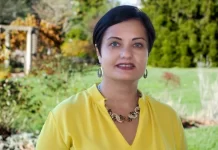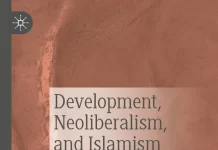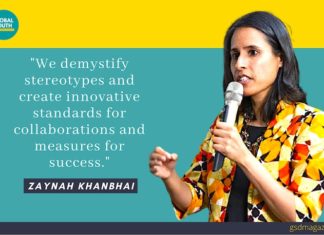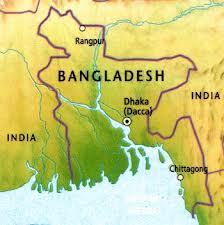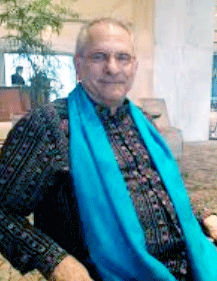 José Manuel Ramos-Horta, the United Nations’ Special Representative and Head of the United Nations Integrated Peacebuilding Office in Guinea-Bissau (UNIOGBIS), is former President of East Timor. A co-recipient of the 1996 Nobel Peace Prize, he is a founder member of the Revolutionary Front for an Independent East Timor (FRETILIN). He served as the exiled spokesman of the East Timorese during its Indonesian occupation.
José Manuel Ramos-Horta, the United Nations’ Special Representative and Head of the United Nations Integrated Peacebuilding Office in Guinea-Bissau (UNIOGBIS), is former President of East Timor. A co-recipient of the 1996 Nobel Peace Prize, he is a founder member of the Revolutionary Front for an Independent East Timor (FRETILIN). He served as the exiled spokesman of the East Timorese during its Indonesian occupation.
After East Timor achieved independence in 2002, Ramos-Horta was appointed as the country’s first foreign minister, then Prime Minister and President. In February 2008, he had escaped an assassination attempt. GSDM’s guest contributor Jose Kalathil caught up with him and talked about what freedom means to him and his vision for the country.
Highlights
- We learned to navigate the complexities of international diplomacy, building a vast network of contacts and friends around the world.
- We never resorted to extremist tactics like kidnapping and killing innocent civilians; we had a very strict code of conduct that never allowed us to descend to the barbarity of the other side.
- Not a single Indonesian civilian was harmed during the 24 years of our struggle. Captured soldiers were set free after a few months. We never abandoned our humanity.
You were at the forefront of Timor Leste’s freedom struggle. What was the situation in the country that prompted you to join and lead the struggle?
I believe that any of us, as a citizen of a country, has an innate, instinctive response to situations of domination and subjugation; we all desire freedom; so for me there was no hesitation in joining others in searching for ways to attain freedom for the country, no matter how minuscule we might look on the map. But on the ground, there are people with a distinct history, identity and values, who want to live in freedom.
What was your experience during this movement for your country’s freedom. How was its independence finally achieved?
Not a single Indonesian civilian was harmed during the 24 years of our struggle. Captured soldiers were set free after a few months.
Timorese are moulded by the majestic mountains, by hundreds of years of living in that island, fending off invaders, or when necessary co-existing with them to survive, learning from them, pretending to accept subjugation and rising up when they feel the moment is ripe. Timorese are warriors, very astute and cunning. That’s their strength, the unforgiving mountains that shelter them and mould them to be tough. But we also learned to navigate the complexities of international diplomacy, building a vast network of contacts and friends around the world. We never resorted to extremist tactics like kidnapping and killing innocent civilians; we had a very strict code of conduct that never allowed us to descend to the barbarity of the other side. We resisted the temptation of violence for the sake of violence. Not a single Indonesian civilian was harmed during the 24 years of our struggle. Captured soldiers were set free after a few months. We never abandoned our humanity. This way we also won much sympathy from Indonesians themselves. Today Timor-Leste and Indonesia enjoy the best possible relationship between any two countries in Asia. Both sides decided from day one that we would cross that bridge, meet half-way, embrace the present and the future, without forgetting the violence and the victims of the past, but without allowing either the past to dominate our present.
What is the situation in Timor Leste at present? Has it improved?
Timor-Leste is among the 10 fastest growing economies in the world, posting double digit growth since 2007; on the UN Human Development Report, it has outdone all sub-Sahara African countries, except for South Africa and Cape Verde; in Asia we have overtaken Bangladesh, Laos and Myanmar. In terms of liquidity, and as percentage of GDP, we have the highest surplus in the world. Our Sovereign Wealth Fund is rated the best managed in Asia.
What is your prescription for solving the problems that your country faces now?
The coalition government led by Prime Minister Xanana Gusmao has launched a 20-year Strategic Development Plan that began in 2011 aiming at transforming Timor-Leste in the course of the next two decades, from low middle income country to upper middle income with an annual per capita income of at least $10,000. Our GNP is now at $5,000. Life expectancy has gone up to 64 years; school enrolment is over 90%. The government is investing heavily in education, professional development, new infrastructures like modern electrification with fibre optics connecting the whole country.
Where and how did you get the inspiration to launch the freedom movement? What was your inspiration and who were your role models?
We were young people with different inspirations and influences, deriving lessons from African, Cuban and Asian liberation experiences.
Was Mahatma Gandhi’s non-violence relevant to your struggle?
In many ways yes. Mahatma Gandhi’s non-violence philosophy influenced our urban youth. As for me, Gandhiji remains my greatest hero.



